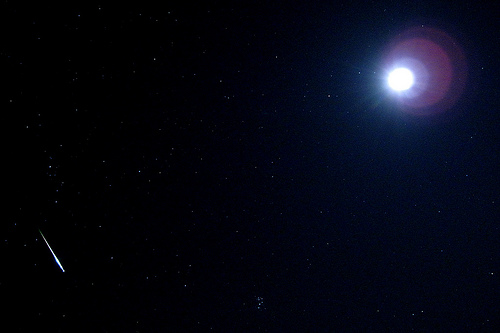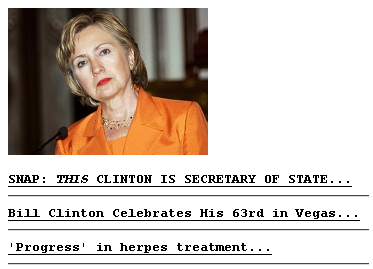I didn’t end up watching the Perseid meteor shower last night — I don’t need any extra sleep deprivation when I’ve got a 1-month-old at home, thank you very much — but SpaceWeather.com says “anecdotal evidence is mounting” that the predicted “uptick” in meteor rates early this morning, around 0800 UT (2:00 AM MDT), did indeed happen. If so, those hardy night owls and early birds who braved the inconvenient hour to watch the show must have been delighted.
In any event, SpaceWeather has posted a photo gallery of last night’s meteors. The gallery will undoubtedly grow as more pictures are sent in. And here’s a nice shot via Flickr, showing a Perseid, the Pleiades, and the Moon:

(Photo by Jon Lewis, republished in accordance with CC BY-NC-ND 2.0.)
Technically, ignoring the unusual hourlong “burst” in the wee hours of this morning, the shower’s nominal peak would be between 1:30 and 4 p.m. MDT today — but obviously, you can’t see meteors during the daytime. After dark tonight, though, the sky will be worth another look. SpaceWeather.com now says: “The show could be even better tonight, Aug. 12th, than it was last night, Aug. 11th.”
P.S. Also note Google’s special logo for the day.

